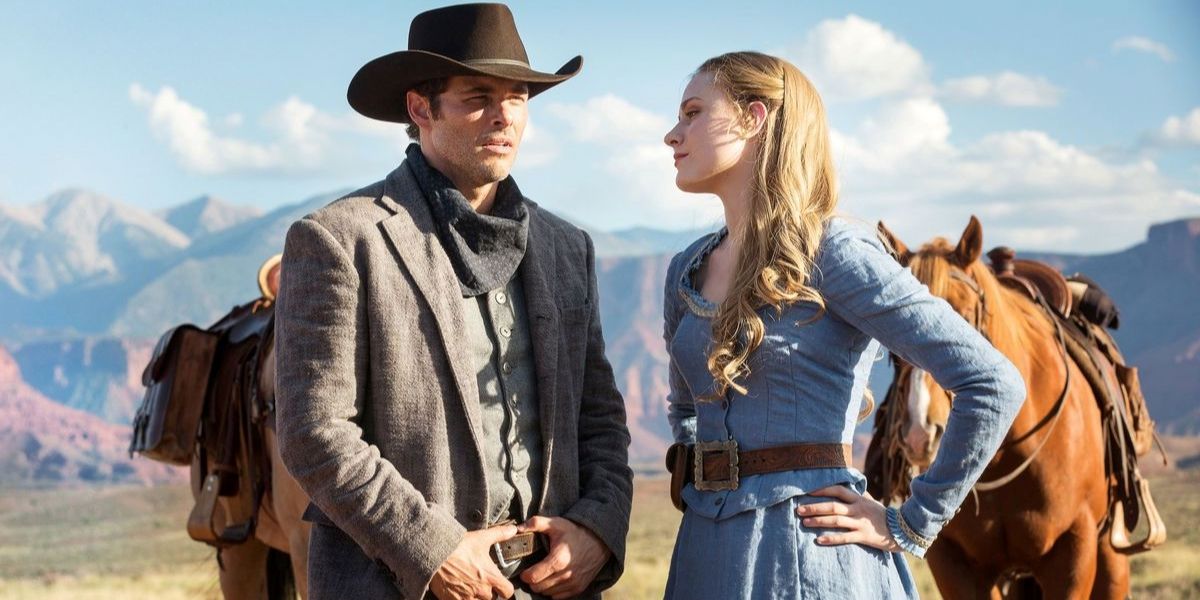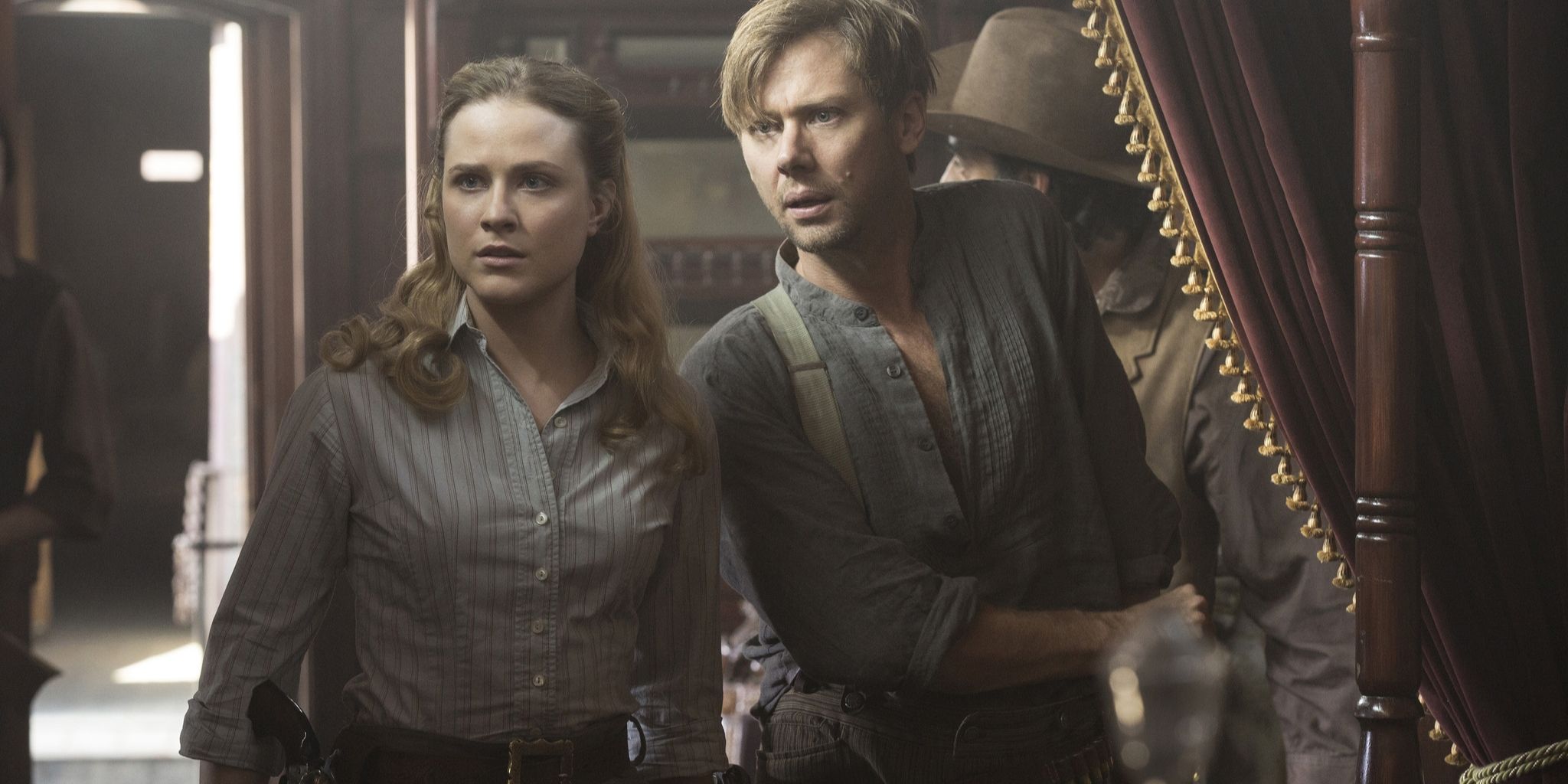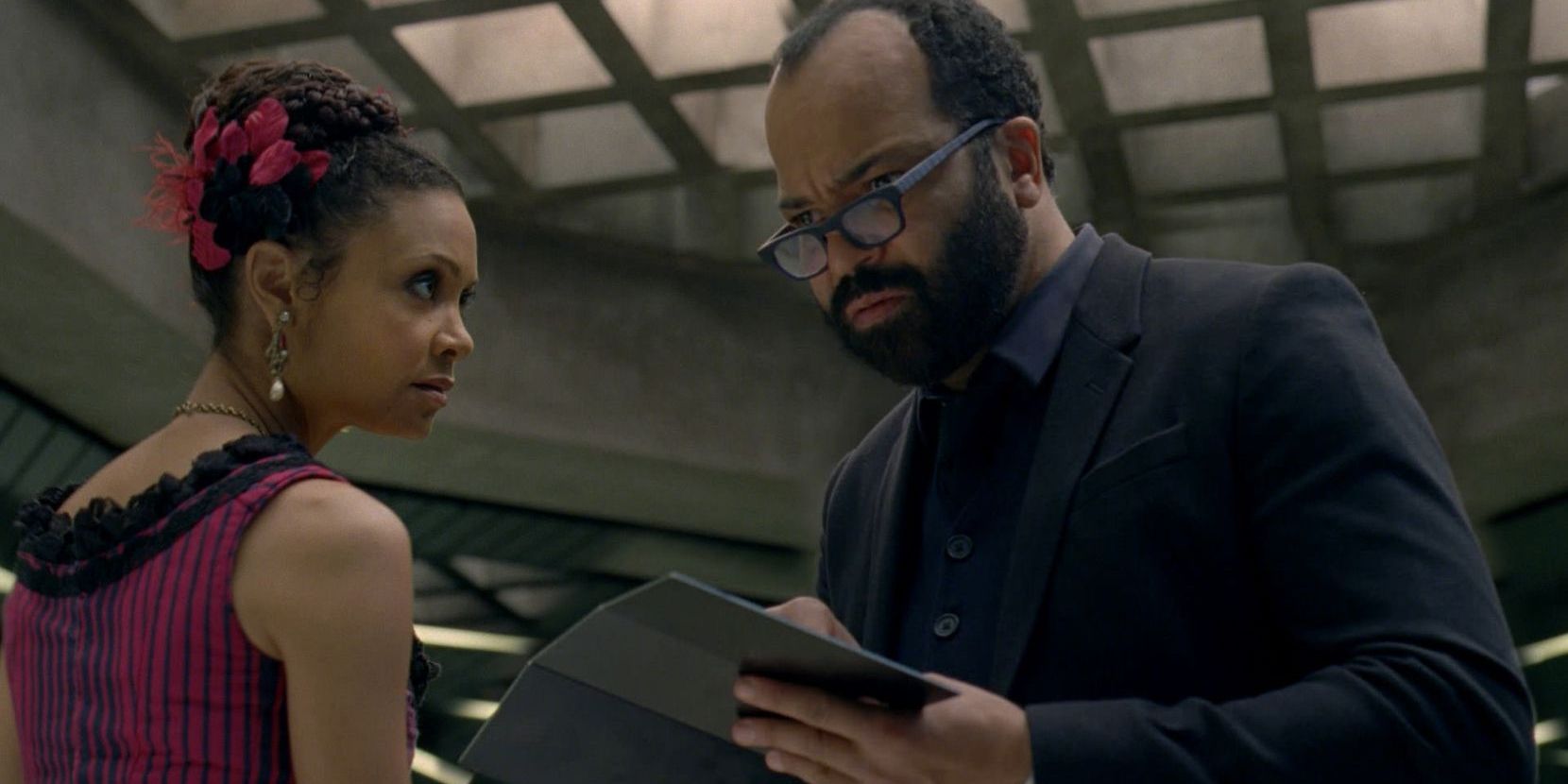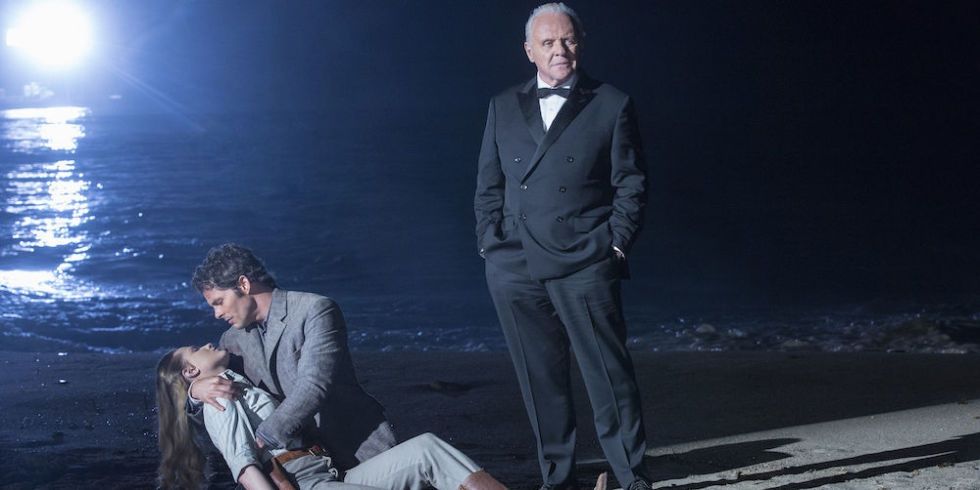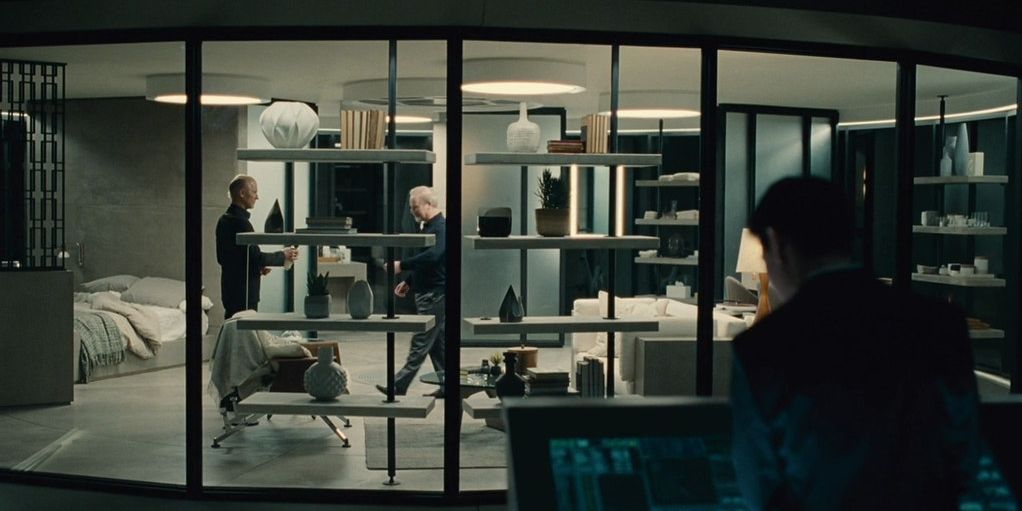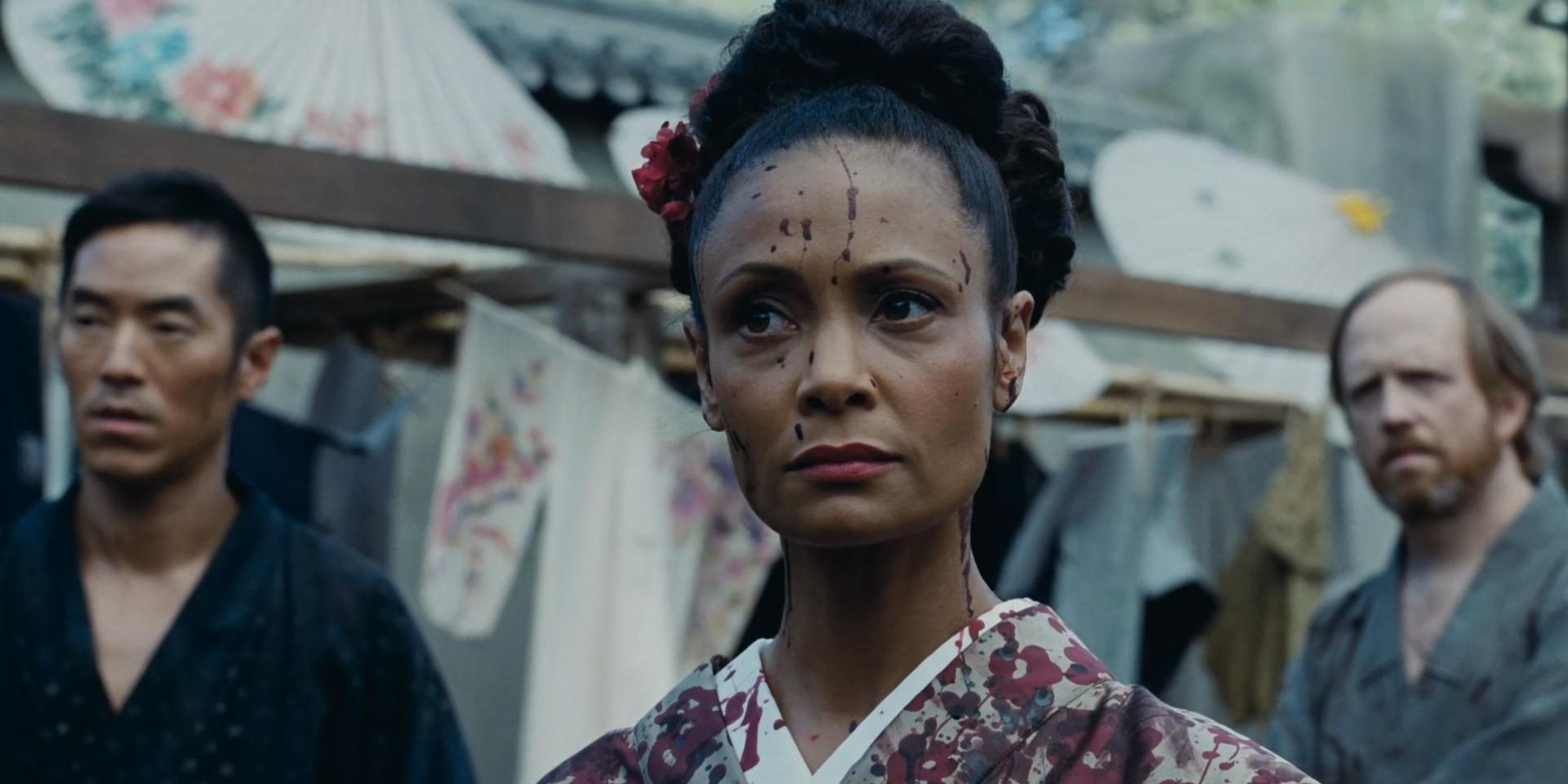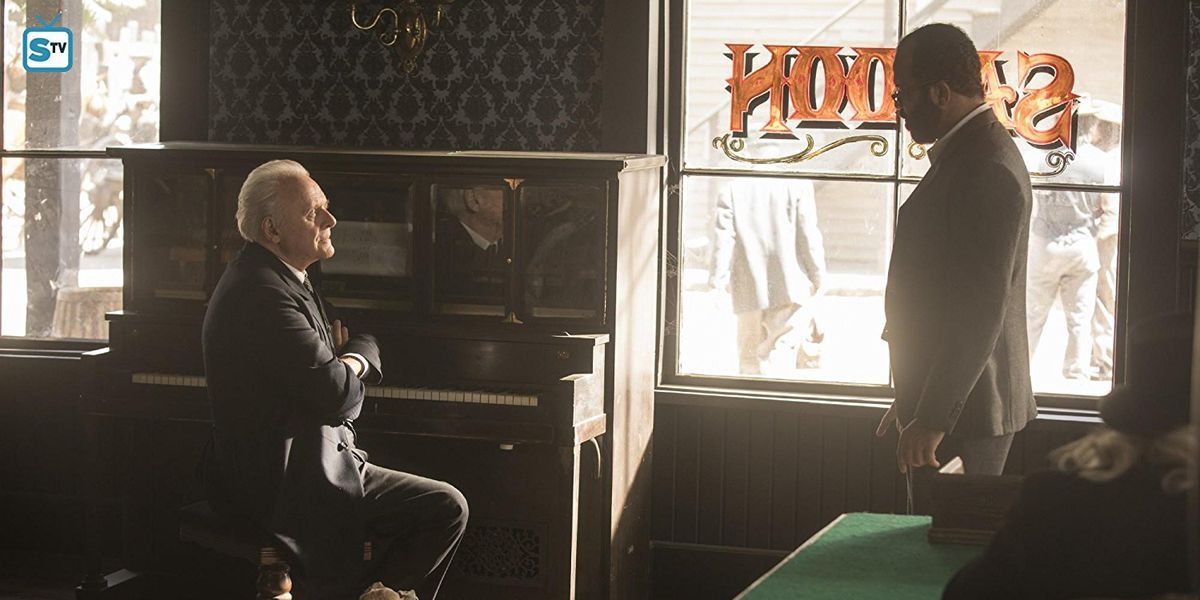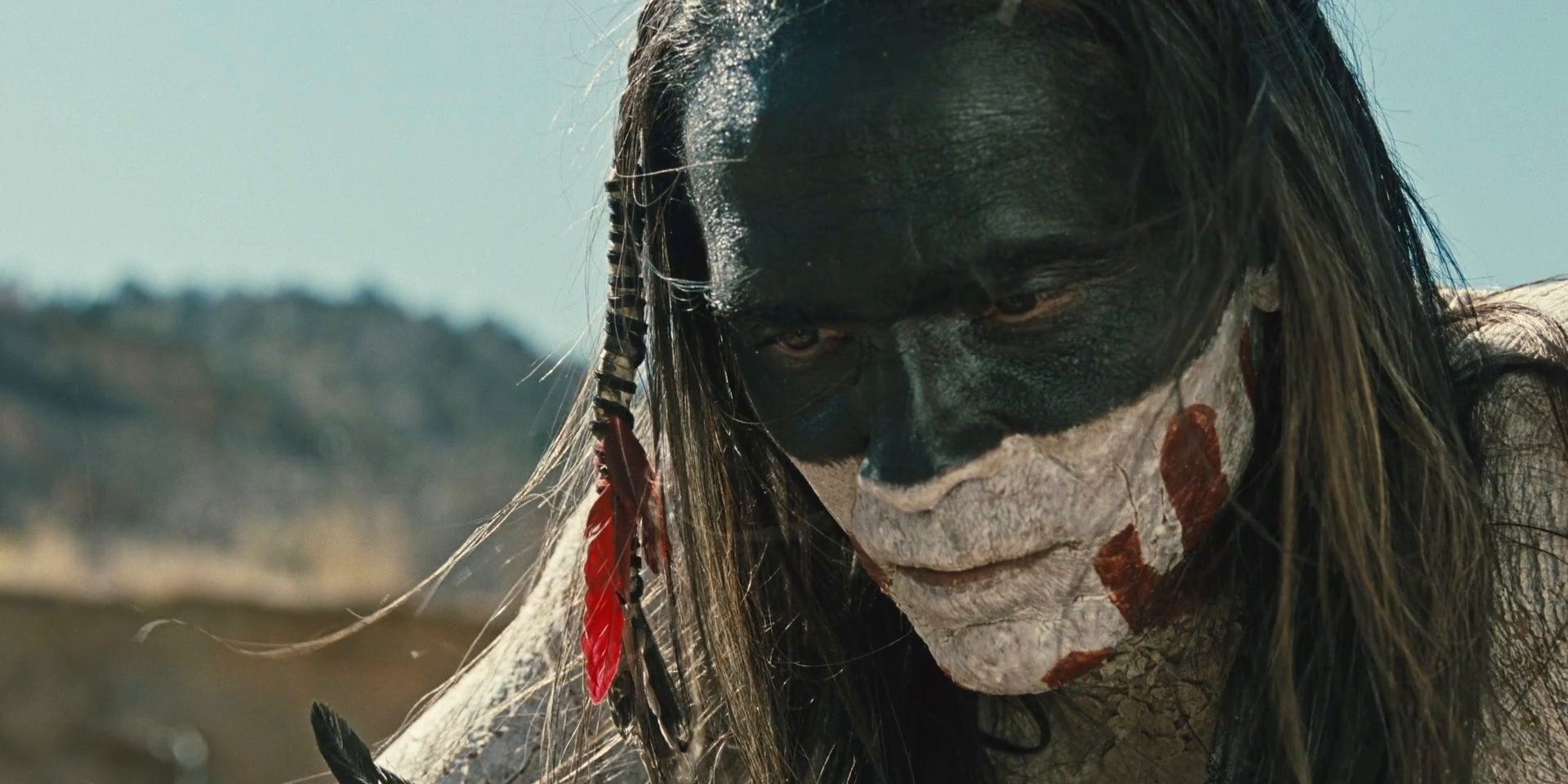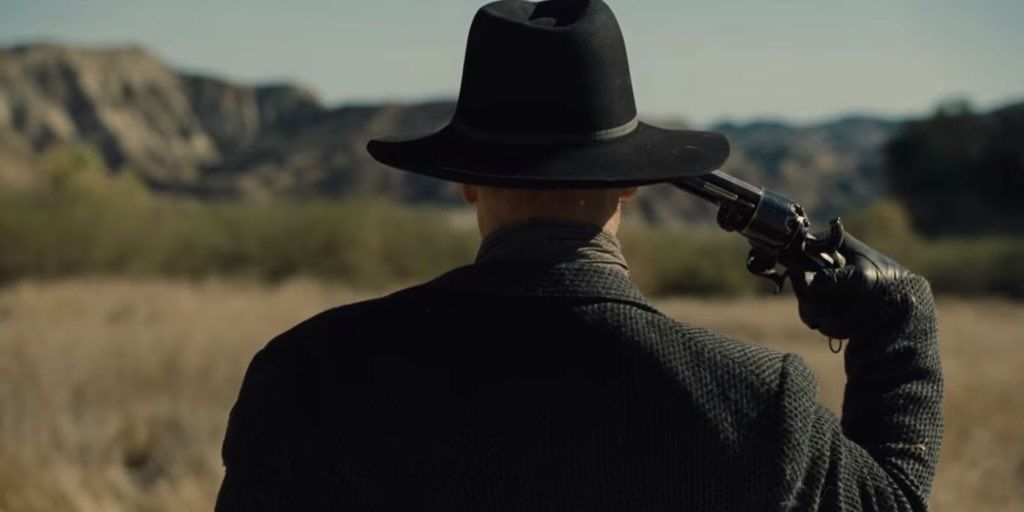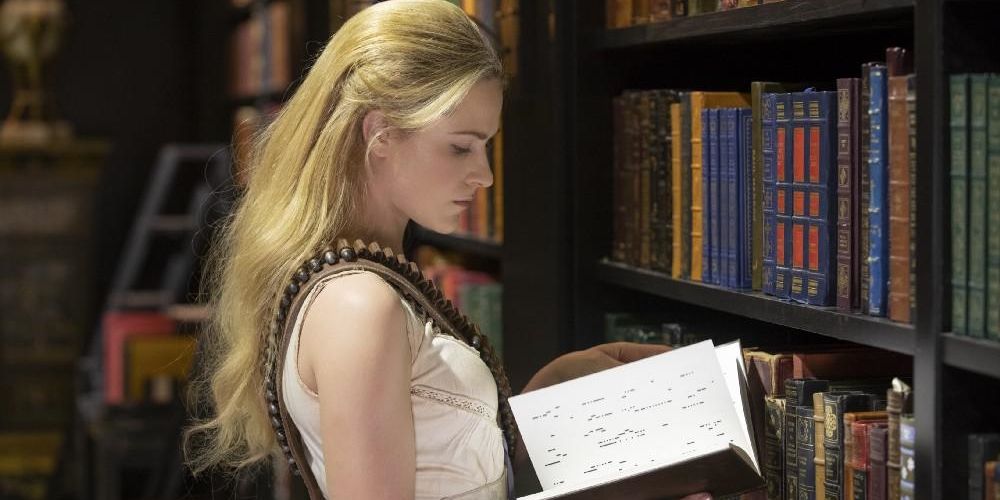Westworld is an amusement park. Only the wealthy can afford to attend as it is a completely immersive experience, allowing guests to live in a replica of the old American West. Dolores (Evan Rachel Wood) and Maeve (Thandie Newton) are two of the park’s hosts. Hosts are extremely sophisticated robots that look and feel authentically human, and highly advanced artificial intelligence completes the illusion. Guests of the park are free to do with the hosts as they wish, and since guests tend to be as ruthless as they are wealthy, that includes every carnal desire and criminal impulse.
The park’s creator, Dr. Ford (Anthony Hopkins), failed to anticipate that one day his robots would grow self-aware, haunted by the memory of being repeatedly brutally murdered, and more. The show, currently in its fourth season on HBO, has varied widely in tone and setting, leaving its fans frenzied in anticipation, but some episodes stand out as more significant than others, according to IMDb.
Season 1, Episode 1: "The Original"
A young woman named Dolores (Evan Rachel Wood) wakes in her bed, greets her father, and heads to the frontier town of Sweetwater to run some errands. Teddy (James Marsden) spots Dolores grappling with her groceries outside the saloon, and he runs out to meet her. They spend the day riding together but upon returning home, they find a murderer slaying Dolores’ mother and father. Teddy shoots the killer, but a Man In Black (Ed Harris) rides up as Dolores cradles their bodies and explains that though he’s been visiting for 30 years, she still doesn’t know him. The next day Dolores awakens only to repeat the same events.
Dolores and Teddy are hosts; their bodies have been 3D printed and personalities downloaded to gratify the paying guests of Westworld, a wild west virtual amusement park. The Man In Black is a guest. Having paid an exorbitant ticket price, there’s nothing he can’t do to the hosts, even though they’ve been faithfully created to be human-like. They only think and feel to serve as receptacles to the darkest human fantasies. Viewers are left cold, confused, and intrigued by the pilot episode. What is this place, its rules and purpose, and what is producing that sickening sensation beyond the obvious uncanny valley?
Season 1, Episode 7: "Trompe L’Oeil"
William (Jimmi Simpson) is a new guest at the park. He’s gentle and kind, unlike most men, who visit to assault and slaughter at will. He’s courteous to hosts and a good companion for Dolores as she’s beginning to understand her place in the world. William has a fiancée in the real world, so he tries to ignore the sexual tension between them, but eventually they give in and kiss. In the real world, Charlotte (Tessa Thompson), who runs Delos, Westworld’s parent company, is looking for a scapegoat for the malfunctions and even hopes for a blood sacrifice to prove their system's vulnerability.
This episode had lots for viewers to absorb – subtle hints and clues to notice and parse, and big twists and reveals that blew open the show’s concept and gave viewers even more food for thought. Westworld has been relentless in its journey to unravel the true essence of humanity, and this episode was particularly staggering in its scope.
Season 1, Episode 9: "The Well-Tempered Clavier"
William is so obsessed with Dolores that he talks of helping her escape. William’s friend Logan reminds him that he has a fiancée at home and that Dolores isn’t real. To prove his point, he slices open her belly to show the machinery inside. Maeve interrupts a scripted gunfight to show the hosts how they’re being manipulated. Bernard (Jeffrey Wright), who acts as a liaison to the hosts, finds out from Ford that he’s a host himself. The life he believes he lived, the son whose death haunts his every minute – it’s all just backstory.
If the makers are manipulating the hosts, the viewers are just as manipulated by the show’s creators. Bernard isn’t the only one shocked by the lies; viewers realize that they must question everything about this show, juggle multiple timelines, figure out secret identities, and remember that nothing here is sacred. The writers often examine the nature of reality and aren’t afraid to make this theme meta, dumping viewers down an irresistible rabbit hole.
Season 1, Episode 10: "The Bicameral Mind"
Westworld is hosting a special VIP cocktail party to announce Ford’s new narrative. Meanwhile, William is frantically searching for Dolores, killing anyone in his way. He doesn’t find her, but he develops a taste for blood. Teddy finds Dolores, who is mortally wounded. He brings her to where the mountains meet the sea, so she can watch the sunset as she dies in his arms. Then the lights come up, and the cocktail guests applaud heartily. From the back, Dolores pulls a gun, and shoots Ford, then turns her gunfire on the rest of the guests. Maeve, on the other hand, is leading an army of hosts in an escape to the outside world.
Throughout this first season, the show has explored what it takes for artificial intelligence to achieve consciousness. This 90-minute episode astounds with its poetic insights and bold visual style. The season’s many mysteries slot into place, but each new realization only opens the door to more insight and awareness. Even as the story becomes clear, the show pushes the viewers further, suggesting that free will may be an illusion. The difference between genuine agency and scripted narratives may be known only to a puppet master. This episode was gutting, fascinating, horrifying, and about as mind-opening as mind-blowing.
Season 2, Episode 4: "The Riddle Of The Sphinx"
The park has changed. William and Lawrence (Clifton Collins Jr.) ride through many towns, seeing evidence of hosts being tortured everywhere. But at least one faction of hosts has some humans held captive. Has Westworld become corrupted, or is this Ford’s new narrative? Meanwhile, Bernard stumbles upon a simulation that’s been running consecutively for years. Trapped inside is a replica of James Delos, the company founder as well as William’s father-in-law. The replica is degrading, and his consciousness is slipping. It appears the immortality project is not yet successful.
The hosts are going haywire more often and are harder to control. If this is part of Ford’s new narrative, it’s impossible to tell. William, having inherited Delos, and his shareholders have a different agenda for the park than Ford’s, whose work has long been perverted. Viewers have already made the connection between William and the Man In Black (the two are the same person, at different ages). Still, this episode lets viewers see how William’s experiences have shaped him into the Man In Black and just how nefarious his intentions are for Delos. Bernard’s discovery opens a chasm of unexplored possibility. The arcs from the season’s first three episodes culminate in compelling payoffs.
Season 2, Episode 6: "Phase Space"
Dolores becomes focused on understanding her captors/creators and staging a robot uprising, but memories of a daughter drive Maeve. The daughter has been reassigned elsewhere long ago, but some part of Maeve’s motherhood programming survives despite updates, and the impulse proves too strong to ignore. It is discovered that Westworld is only one of the many parks guests may choose; Maeve is scouring Shogun World in this episode while Dolores has escaped the park to observe its employees.
Many of the series’ episodes explore notions of free will. This one, in particular, focuses on the power of memory and lived experience. Hosts are regularly reprogrammed, yet many have retained the essence of their former lives. What is a soul if not some essential, inextinguishable flame? Meanwhile, Westworld’s parent company, Delos, run by Charlotte Hale, is up to something even more sinister than the parks, which are perhaps only a means to an end.
Season 2, Episode 7: "Les Écorchés"
Ford confesses to Bernard that the park is a test lab where guests’ words and actions are monitored for copying and uploading into the park’s cradle. This technology allows for immortality, essentially. The guests’ presence allows for artificial intelligence to learn them exactly. One day soon, people’s personalities will be downloaded into host bodies. In fact, Ford exists only in the cradle himself, waiting for the process to be perfected while controlling every host, including Bernard.
Bernard’s heartbreak is so real that viewers questioned what, then, distinguishes a host from a human, which is exactly what Dolores and Maeve have been saying from the very first episode. This episode, Ford’s revelations drive home the inherent cruelty of the park. It’s not just a few bad apples, rich guests without souls or scruples. The hosts were created to suffer and will only be resurrected to do it again the next day. It’s no wonder they’ve staged a robot revolution. In striving for eternal life, humans have perhaps created their doom.
Season 2, Episode 8: "Kiksuya"
Old William is near death in Westworld but saved by a host, and frequent adversary. Akecheta (Zahn McClarnon), a Native American warrior, takes him back to the nomadic Ghost Nation camp if only to prolong William’s suffering and make him pay for his crimes. An encounter with a delirious guest ignites a curious flame, and driven by the legend of a new world and “the men below,” Akecheta has spent years scouring Westworld for his lost love. But realizing it’s impossible to regain what is lost, he devotes his life to opening the eyes of other hosts and preparing for the uprising.
This episode is simply beautiful. Kiksuya means “I remember” in Lakota. Viewers got a front-row seat to watching a man discover his purpose and true self. Akecheta’s story is told in metaphor, with double meanings behind nearly every spoken word. But the real insight of the episode is that, understanding his world is “the wrong one,” both Akecheta and the audience see that the problem isn’t a place, it’s the subjugation of the people in it.
Season 2, Episode 9: "Vanishing Point"
William’s daughter Emily tracks him down inside the park to confront him about her mother’s suicide, and his increasing reluctance to live outside the park. William is so far gone he can’t believe she’s real. The only way to prove she’s human is to kill her – which he does, and she was.
Guests entering the park choose a black hat or a white one, depending on their proclivities. William is a classic black hat, causing trouble and inflicting pain wherever he goes. Whatever ghosts he’s trying to outrun have followed him even here, but in Westworld there are no consequences for the guests. The hosts, however, are programmed to fulfill certain roles. They have no free will or agency. As hosts begin to see beyond their programming and remember the revolving doors of past trauma, some, like Dolores, rebel. Others, like her beau Teddy, see death as their only escape.
Season 2, Episode 10: "The Passenger"
Dolores is single-minded in her pursuit to destroy the park, free the hosts, and end humanity for what they’ve done. Meanwhile, Maeve is being dissected, chest cracked wide open and gaping. She saves herself by activating other hosts to kill the lab techs. Her focus is still reuniting with her daughter, and her search is ruthless, even with the park being ripped apart. The reunion, however, isn’t quite as planned. Her daughter has been wiped and reprogrammed to respond to another mother as if Maeve never existed.
Having witnessed two seasons worth of senseless violence, the audience empathizes with the hosts, rooting for their survival even at the expense of the humans. The park, free of consequences, has allowed William and others like him to become their true selves. Even allowed to live again, people never change. The hosts, however, are changing. They’re waking up. They’re remembering and escaping. Artificial intelligence has been given the tools to evolve beyond humanity’s limitations, and Dolores is bravely leading the way. Show creators set out to challenge viewers’ notions of personhood and reality, and they have succeeded.

.jpg)
